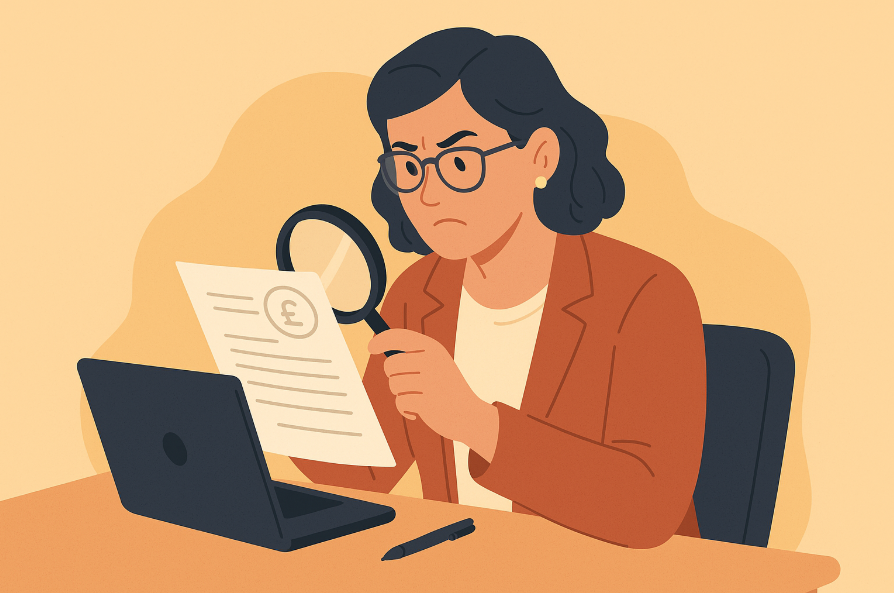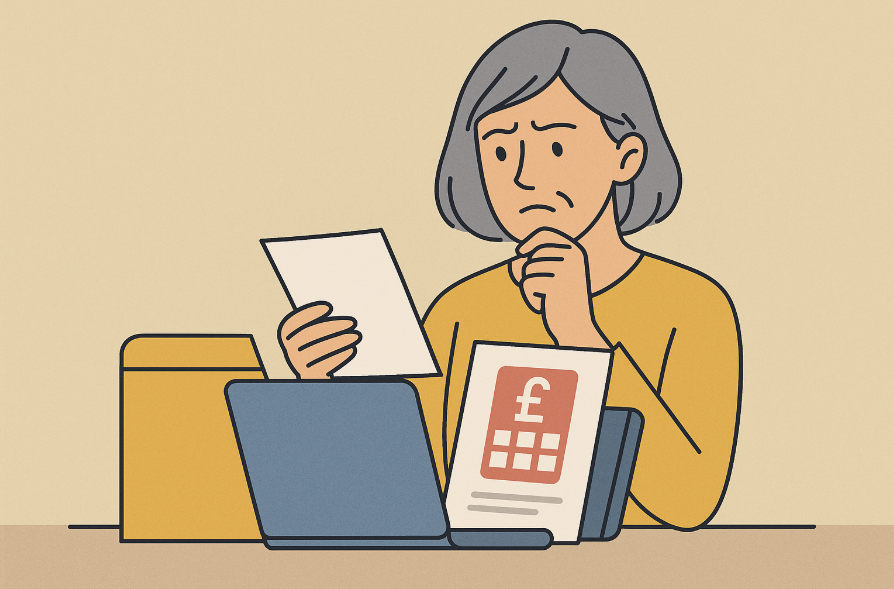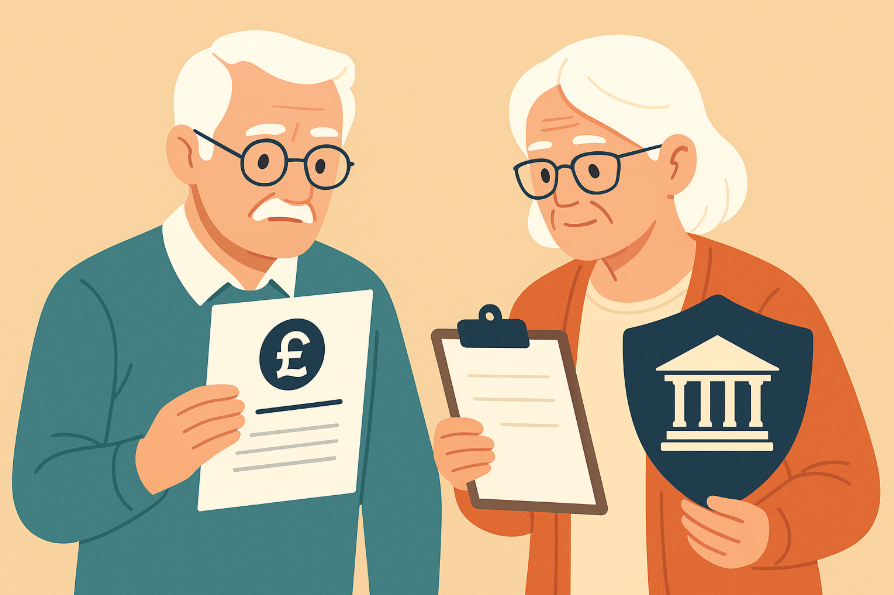For many pensioners in the UK, the State Pension is a vital source of income in retirement. But what happens if you’ve been underpaid for years without even realising it? This is where DWP State Pension Back Payments come in.
The Department for Work and Pensions (DWP) has admitted that thousands of pensioners — particularly married women, widows, widowers, and those over 80 — may have received less than they were entitled to. In fact, more than £1.5 billion is now being repaid to correct these mistakes.
Understanding who is eligible, how to claim, and what impact these back payments could have is crucial. In this guide, we’ll explore everything you need to know about DWP State Pension Back Payments, from eligibility rules and the claims process to tax implications and real-life examples.
What are DWP State Pension Back Payments?
DWP State Pension Back Payments are lump sums given to people who were underpaid their State Pension in the past. These underpayments usually happen when the Department for Work and Pensions (DWP) miscalculates what someone is owed.
The reasons are varied. Some people had gaps or errors in their National Insurance (NI) record, while others — particularly married women — were affected by outdated rules that linked their pension to their husband’s contributions. In some cases, widows, widowers, and divorcees did not receive the correct entitlements after a life change.
Who is Eligible for DWP State Pension Back Payments?

Eligibility depends on your personal circumstances and the type of State Pension you receive. Those who reached pension age before April 2016 are more likely to be affected, as the old pension system was more complex.
How do National Insurance contributions affect eligibility?
Your NI record is the foundation of your State Pension. If your record is incomplete or recorded incorrectly, your weekly pension may have been calculated too low. For example, if a year of national insurance contributions was missing due to employer reporting errors, that could reduce your entitlement. In such cases, the DWP may owe you back payments once the mistake is corrected.
Are women disproportionately affected by State Pension underpayments?
Yes. Married women, especially those who relied on their husband’s NI record, have been disproportionately underpaid. Under old rules, a wife could claim up to 60% of her husband’s basic State Pension. However, many women did not receive this uplift automatically. This oversight left thousands of women on much lower pensions than they were entitled to, in some cases for decades.
Can widows, widowers, or divorcees claim back payments?
Life events such as bereavement or divorce often trigger pension entitlement changes.
-
Widows may inherit a portion of their late spouse’s State Pension, but some were not awarded the increase automatically.
-
Widowers in similar circumstances may also have missed out if their partner’s record was not updated correctly.
-
Divorcees can sometimes claim based on an ex-partner’s NI record, but many were not informed of this right at the time of retirement.
What role does age and retirement date play in eligibility?
Those who reached State Pension age before 6 April 2016 fall under the “old State Pension” rules and are most affected. The “new State Pension” (post-2016) has fewer errors but still requires checking.
Comparison Table: Who May Qualify for Back Payments?
| Eligibility Group | Reason for Back Payment | Notes |
|---|---|---|
| Married women | Pension not linked to husband’s NI record properly | Most common group affected |
| Widows/widowers | Inherited rights missed | Can claim even after spouse’s death |
| Divorcees | Pension entitlement based on ex-partner’s record | Must provide divorce papers and NI details |
| Over 80s | Not receiving the Over 80s Pension (£85/week) | Automatic entitlement regardless of NI gaps |
| General pensioners (pre-2016) | NI miscalculation or administrative oversight | DWP must correct mistakes and issue payment |
How Does the DWP Identify State Pension Underpayments?

The DWP is running a large-scale review of pension records. Priority checks are being made for:
-
Married women.
-
Widows and widowers.
-
People over 80.
Caseworkers cross-check NI contributions against pension awards and marital records. However, not all groups are reviewed automatically. If you don’t fall into a priority category, you may not be contacted — which means you must check your pension yourself.
How Can You Claim DWP State Pension Back Payments?
If you think you’ve been underpaid, you’ll need to take active steps to check and claim. While some repayments are issued automatically, others require you to raise the matter with the DWP.
What documents do you need to make a claim?
You should collect:
-
Past pension statements.
-
Marriage, divorce, or death certificates (if relevant).
-
Any correspondence from DWP.
How do you contact the DWP about back payments?
You can:
-
Call the Pension Service helpline.
-
Write a formal complaint or enquiry letter.
-
Ask your MP to raise your case if delays occur.
Can you claim online or only by phone/post?
Currently, claims are mostly handled by phone or post. Online systems are limited, but you can start by checking your forecast on the Government Gateway.
How long does it take to receive back payments once approved?
Timelines vary, but many pensioners wait several months after making a claim. The DWP has admitted to delays due to the volume of cases. Once approved, however, the money is usually paid in a single lump sum directly into your bank account. For some pensioners, these payments have reached tens of thousands of pounds.
What Can You Do if Your Claim for Back Payments is Rejected?
If the DWP turns down your claim, don’t panic — you have options:
-
Request a Mandatory Reconsideration where a new decision-maker reviews your case.
-
If still refused, appeal to the Social Security and Child Support Tribunal, an independent body.
-
Strengthen your appeal with documents such as NI contribution records, marriage certificates, or expert letters.
Many pensioners succeed at the appeal stage, especially when they present solid evidence.
How Much Can You Receive from DWP State Pension Back Payments?

How is the amount of back payment calculated?
The DWP calculates based on:
-
The difference between what you were paid and what you should have received.
-
The number of years underpaid.
Is there a maximum limit to back payments?
There is no official cap. The DWP is obliged to repay what you are owed from the date you first became eligible. That means some pensioners have received life-changing sums, while others get smaller amounts depending on their case.
Can you get interest on late State Pension payments?
No. Currently, the DWP does not add interest when repaying missed pension money. Pensioners only receive the exact amount they should have received originally, without compensation for lost time or inflation.
Why Do DWP State Pension Back Payments Take So Long?
Processing delays are a common frustration. Reasons include:
-
Old NI records needing manual checks.
-
Verifying marital status changes with certificates.
-
DWP staff shortages and backlog of cases.
What Should You Do if You Suspect an Underpayment?
How can you check your State Pension forecast?
The easiest first step is to use the Government’s online forecast tool, which shows what you’re currently getting and what you should be entitled to. You can also request a paper statement if you prefer not to use the internet. By comparing your forecast against actual payments received, you can spot any discrepancies.
What evidence should you collect before contacting the DWP?
Before making a formal claim, gather documents such as:
-
Old payslips and P60 forms.
-
Your full NI contribution history.
-
Marriage, divorce, or bereavement records.
Who can help you resolve disputes with the DWP?
If you feel stuck, you don’t have to handle everything alone:
-
Citizens Advice offers free guidance on pensions and benefits.
-
Age UK has specialist advisers familiar with pension underpayment cases.
-
Independent Financial Advisers (IFAs) can help check complex entitlement questions, especially if your case spans decades.
Are There Tax Implications on DWP State Pension Back Payments?

Do you have to pay tax on lump-sum back payments?
Yes, back payments are treated as taxable income. However, HMRC spreads the tax across the years when the pension should have been paid. This system ensures you don’t suddenly face a huge tax bill in the year you receive the lump sum.
How are back payments reported to HMRC?
The Department of Work and Pensions informs HMRC automatically when it issues a back payment. You don’t need to report it separately, but you should check your tax code to ensure HMRC has updated it correctly.
Can back payments affect your benefits or allowances?
Yes, in some cases. If you receive means-tested benefits such as Pension Credit, Housing Benefit, or Council Tax Support, a lump sum back payment could temporarily push you above the threshold. However, many benefits have rules to disregard back payments when assessing eligibility, so always check with the DWP or your local council.
Can Families Claim DWP State Pension Back Payments on Behalf of Deceased Relatives?
Yes, families can claim. If a pensioner passes away before receiving what they were owed, their estate or next of kin can still receive the money. In some cases, families only discover the underpayment when going through probate. The DWP then issues the back payment to the deceased’s estate, ensuring money isn’t lost.
What Are the Recent DWP State Pension Back Payment Cases in the UK?
How many pensioners have been underpaid according to recent reports?
The DWP has admitted that more than 200,000 pensioners may have been underpaid, with total compensation expected to exceed £1.5 billion. Some individuals discovered they were owed tens of thousands of pounds, highlighting the scale of the issue.
How Can DWP State Pension Back Payments Change Pensioners’ Lives?
The impact is often profound. Pensioners who lived on very little for years have suddenly been able to:
-
Pay off debts.
-
Cover healthcare costs or home adaptations.
-
Support family members.
-
Enjoy a more comfortable retirement.
Age UK reports cases where pensioners received lump sums of £20,000 or more, completely transforming their financial security.
Conclusion: Why Should You Check for DWP State Pension Back Payments?
DWP State Pension Back Payments have already helped thousands of people reclaim money that should have been theirs in the first place. For some, it has meant clearing debts; for others, it has improved day-to-day living.
If you are a married woman, widow, widower, over 80, or retired before April 2016, you are particularly at risk of underpayment. Don’t wait for the DWP to contact you — take action, check your entitlement, and ask questions if something looks wrong. The money you recover could make a significant difference to your retirement.
FAQs
Who is entitled to State Pension back payment?
Pensioners underpaid due to DWP errors, often married women, widows, widowers, divorcees, and those over 80.
Which pensioners are owed money?
Mainly those who retired before April 2016 and had entitlements linked to a spouse’s or ex-spouse’s NI record.
What will be the pension increase in April 2026?
The increase will follow the triple lock system, but the exact percentage depends on inflation, earnings, and 2.5% growth.
How do I know if I have been underpaid on my State Pension?
Check your forecast online, compare it with what you receive, and contact the DWP if figures don’t match.
Is State Pension paid in arrears when paid weekly?
Yes, the State Pension is always paid in arrears, covering the previous week.

I’m Joe Chris, co-author at ukbusinessmag.co.uk and a long-time enthusiast of all things business and finance. My background is in digital marketing and e-commerce, and I love diving into trends that impact the UK business landscape. Through my writing, I aim to make useful, real-world advice accessible to business owners.



